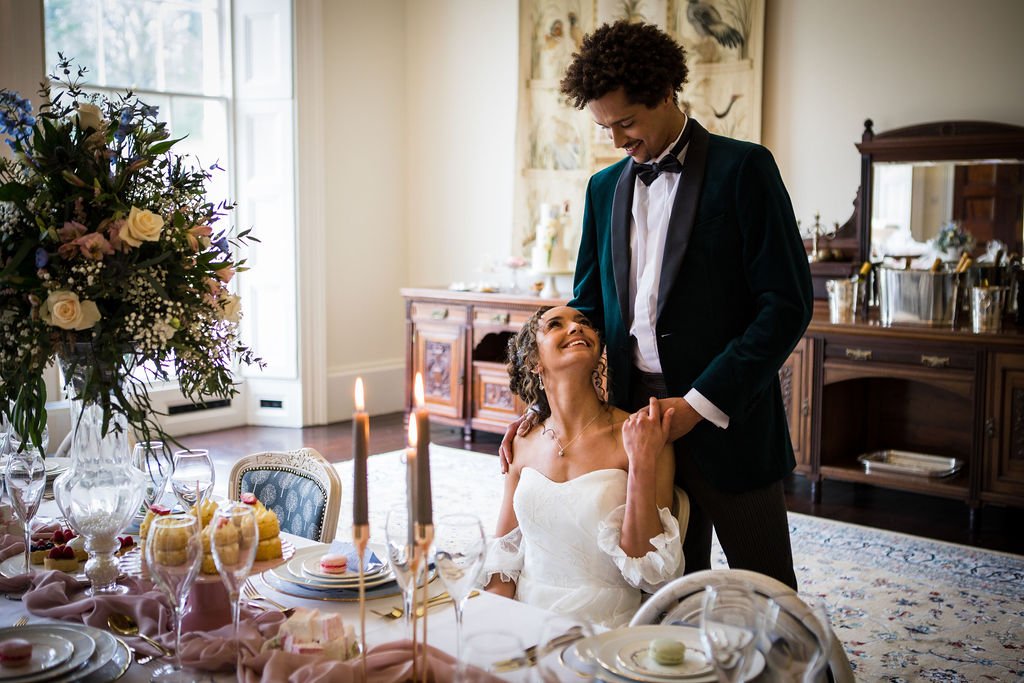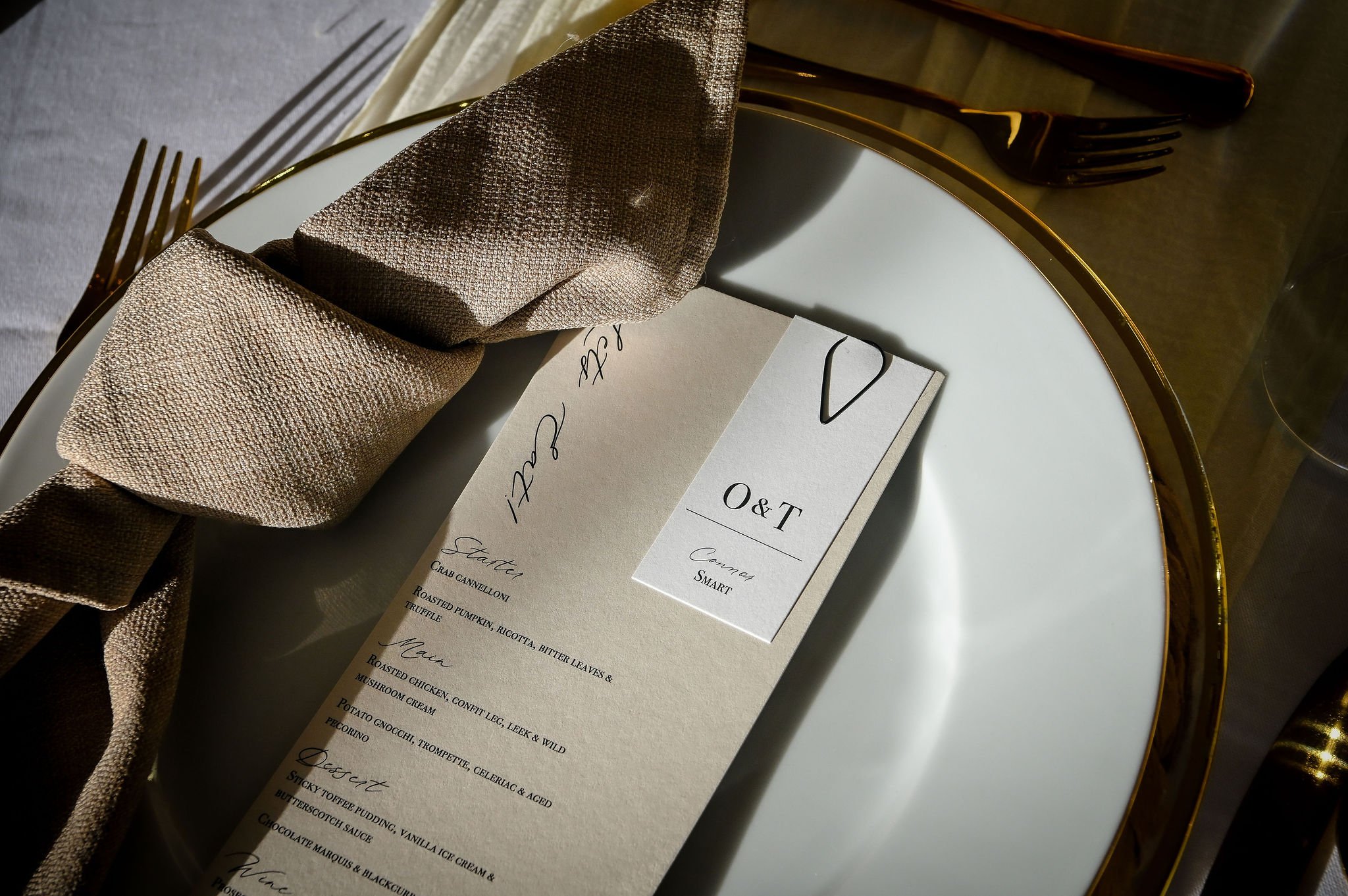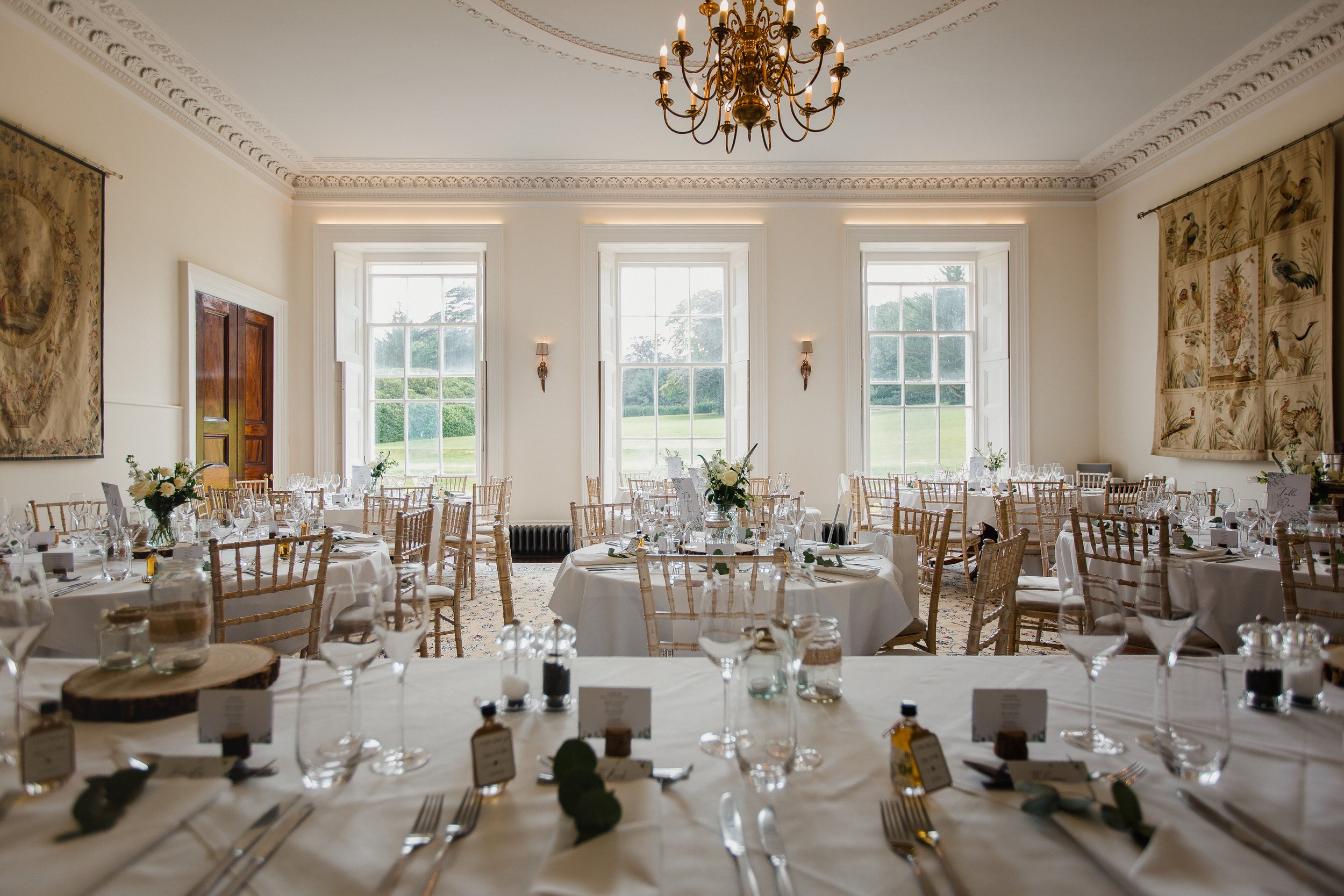How to choose your perfect wedding venue
It could be in your back garden, under water, underground, falling from an aeroplane, up Mount Everest, or even in space – you really can get married almost anywhere. So how do you narrow things down and pick your ideal venue?
Where you marry is not quite as big a decision as who you marry, but it’s still pretty important to your wedding day plans. Even if you’re not looking for one of the more extreme locations, your venue will usually need to be reserved well ahead of time and is often one of the single biggest costs too. It will set the style and affect many of the other practical choices you need to make, such as the legal arrangements, catering, travel plans and key suppliers.
So how do you choose the perfect venue? We’re biased, and obviously would love to say that our venue, Moreton House, is THE perfect venue. But it won’t be perfect for everyone, and it’s most important that you find a place that works for you. So how do you decide?
Here are our top tips to help you through this key decision.
The legal bit
Church bells, barefoot in the sand, in a grand building or a beautiful landscape - whatever the style, you need to plan the legal part so you are actually contractually married.
You can be married in the legal sense in a place of worship, in a registry office, or by a registrar in any licensed venue.
For the first two options, you will most likely perform the legal ceremony in one place, and be looking for another venue for a reception. This will give you a wider choice, as your venue for the reception can be almost anywhere, and there’s no need even to have the party on exactly the same day.
If you’re keen to have everything in one place, however, licensed venues are an increasingly popular and varied option, allowing you to have a registrar come to your chosen space to perform the legal ceremony before you carry on with your reception. This means you and your guests don’t need to move around on the day or drive anywhere. You can be more in control of the flow of your day, and many venues also offer accommodation too.
A licensed venue may cost a bit more as they have to cover the cost of the license and the obligations and insurances that are required to qualify, but remember that if you get married at a church or registry office, there will still be registration fees – so if you’re making decisions based on cost, remember to include these in your budget.
You can find a list and map of licensed venues under the registration services section of each county council website. And you aren’t obliged to stick to your own county.
If your perfect spot isn’t licensed for weddings, you can complete the legal marriage at a registry office but still have a ceremony anywhere and at any time you like by using a celebrant. That way you can bring your own style or preferred traditions to your ceremony.
Unless you’re deliberately separating the legal bits and the party, it’s best to secure the venue and registrar or church right at the start – most venues will give you some save the date option with limited deposit risk to give you chance to secure your ceremony time.
Budget
This is perhaps the most difficult and important part of your wedding planning and one of the first things you should thrash out with your partner - what are you willing to spend? It’s really important to realise that there will always be ways to spend more. Advertising and social media will always make you feel like you have to have more, better, bigger, and just the right one of everything. But you really must set your own limits, and balance this amazing day with everything else in your lives together. Remember that whatever you do or don’t spend, the important thing is you as a couple are choosing to make some really profound promises to each other in front of the people that mean the most in the world to you, and that really is priceless.
So, get realistic with your finances. Do you have savings? How long do you need to save up for? Are your family helping (and does their help come with strings and compromises to the wedding you want)? Is it sensible to borrow money? How do you weigh up the importance of your wedding with your home, any children, honeymoon plans and so on? There are lots of other places to read specific advice about setting a budget (wedding planning websites like Hitched are a good place to start) To give you an idea, here are some average figures from last year, with numbers pooled from a number of different surveys. You clearly need to make your own decisions about what you want to spend.
Once you have an idea of a total, a very rough guide from these surveys is that the venue on average accounted for around 40% of the total budget. I say very rough because some venues will be all ready to go, so the price is the price, especially if catering is included, whereas others (a marquee for example) might need lots (or everything) bringing to the party, in terms of décor, furniture, kitchen facilities. If you nominate roughly this proportion of your budget to achieve your wedding-ready venue, you will be thinking along the right lines as you compare your options.
As you start researching venues and discovering the variety of what they include, inevitably there will be things you never even realised you needed, and your list of budget items will get longer. Remember that this is all useful research!
The catering and bar options of each venue will also feed into the overall budget, and it is important to understand the cost and choice implications of these. The venue’s own caterer may look more expensive than the outside caterer you first looked up, but look closer as you may not be comparing like with like. Did they include the cost of waiting staff, crockery and cutlery, glasses, table linens, kitchen equipment hire? Will they pour and serve your toast? Will they lay the tables, and, who will be responsible for décor? Is there someone available to prepare welcome drinks during the ceremony to serve as you come out?
The same hidden costs can happen with the bar too. Buying wine from a hotel or caterer is more expensive than buying it from the supermarket, but for good reason. There are licensing responsibilities (who is to blame if there’s an alcohol related accident) and fees, the cost of taking away the empties, glasses to provide and wash up, and staff to serve and clean up. If you provide the table wine, you may be required to pay corkage to cover these kinds of costs or to pay other people to fill the gaps.
Once you start getting a few quotes, you will soon learn what questions to ask so that you know that all of the bases are covered. And when it comes to your wedding, you would be wise to make choices based on value and service rather than just price. On the day, you will want to be able to relax and enjoy all that you have worked so hard for.
Numbers
One factor more than almost anything else influencing your budget is the size of your guest list. You will always need to trade off guest numbers with the quality of everything you have at your wedding. Even though some of your suppliers will cost the same whether you have 2 or 200 guests, it’s not just the meal that adds a price per head. There’s the furniture and décor, more staff, linens, favours and stationery, and even with a paying bar, you may still be providing table wine, a toast drink and a welcome drink. It’s not difficult to get to £100 per head for the works.
With bigger numbers you will inevitably find ways to save, such as sharing plates, grazing tables, food vans and hog roasts, but it’s worth thinking about the trade-off between quantity and quality early on. And diplomacy will inevitably play a part – as with any decision of this type, your family and friends will no doubt have their own views on who should be invited!
Your numbers will then feed in to your choice of venue as they will all have a maximum or ideal capacity. Many will have a maximum number for dining and a higher capacity for an evening reception. Balancing budgets and family politics will always be a feature in working out who you invite to different parts of your celebrations.
If it all gets too much, remember that elopement weddings are growing in popularity too!
Get the look
If you are trying to create a certain look or style, it is also worth thinking about the backdrop your venue provides. As you browse the wedding magazines, are you liking the rustic, the rural, indoor or outdoors, the formal or the quirky? There are venues to suit every taste, and it’s best to pick a place that suits the look and vibe you’re aiming for. Trying to transform a rustic barn with a slick modernistic theme or going full boho or rustic in a carpeted city hotel will require more décor, time and skill.
As a stately home venue, we obviously cost a bit more to hire than a community centre or village hall, but on the plus side a lot of the styling is done for you (assuming it suits your taste). A blank canvass may be cheaper, but then cost hundreds to transform into your dream wedding-scape (one local couple spent £2000 on marquee lining and lighting hire services to transform a village hall into their wedding wonderland).
Create a mood board and see if you can’t find a backdrop that does most of the job for you.
Obviously even in a fully furnished stately home, you still get to dress the tables, add flowers and personal touches – more is always more - but you don’t have to style every corner to avoid worrying about the background of your wedding video. As you weigh up the choice of venue and the cost, you should be thinking about what you would need to bring to each, in order to create the wedding you want. Seek inspiration from wedding videos and photo galleries to see which backdrop you see yourselves in.
To DIY or not to DIY
When you are looking for a venue, you will no doubt soon become aware that some venues offer ‘DIY hire’, others offer ‘inclusive packages’ or ‘catered packages’, and you will find everything in between. (See our jargon buster for some help working through the terminology.) When choosing your venue you would be wise to work out what your priorities are in terms of your time and budget, how much work you are willing to do yourself, and how much you want to control the details.
DIY means you might hire an empty room, hall, barn, marquee – generally the cheapest option at the outset, but it also means you will be responsible for all of the details and logistics, not just catering and drinks, but furniture, décor, staffing, maybe event/alcohol licensing and event management on the day. You’ll need to work out who will clean up the next day, take all the bottles to the recycling, receive deliveries and supervise the set up, light the candles in the morning while you are having your hair done. There’s lots of hard work, but great for someone who wants to own absolutely every detail, and it can save you money if you are willing to put in the hours.
At the opposite end of the spectrum, a hotel or all-inclusive venue may take care of everything for you. That can be wonderful in terms of ease of planning and taking away the stress. But this type of venue will also like be much more prescriptive about your choices – using their own catering and bar almost certainly, but also how you are allowed to work around other guests, how much access you have to the rooms, what you can decorate and when you can check in to get ready.
A dedicated venue offering exclusive use may offer a nice in-between option with choice but also guidance. Ask yourself how much control or freedom you want with your planning, and how much work you are willing to do.
Even dedicated venues come in different forms – there are ones with in house catering or bars, those without – often known as dry hire. And with dry hire venues there are different levels of flexibility about who you can book to do your catering - some will have approved or preferred suppliers. This isn’t about profit, it’s usually about working with suppliers who are known and trusted to deliver a certain standard of service.
Especially for a DIY venue, do consider working with a professional planner, however competent or organised you are – even if it’s just to pass over the reins on the day before or the morning of your wedding. You really can’t run the playlist or pour the welcome drinks as you walk down the aisle.
Location
Home or away? Do you want to plan a wedding on your doorstep, using all of your local knowledge. Or do you need to think further afield, maybe because you live nowhere near your families?
In general, how spread out your friends and family are, will tell you a lot about the type of venue that would suit. If your guests hail from several distinct geographical locations you need to ask yourself if one of these locations makes most sense. If one family is hosting, or one side is ‘home’ while the other is ‘away’, it inevitably changes the dynamic – and can be amazing IF that’s what you want. Otherwise, neutral ground may be more diplomatic.
If one family is at home, while the other is travelling, you’ll also need to think about accommodation options. Are they able to stay at your venue, or all together somewhere near? Will organising places to stay fall to you, and, if so, are you happy to do that – you know your family!
It’s worth remembering too, that geography will factor into who and how many of your potential guests will actually attend. If you see yourself being wed on a beach, with no one else around then you can happily choose a far-flung tropical island idyll. But if you fancy a huge party afterwards, and know your family and friends don’t have the budget for a week in the tropics, you might have to compromise with something closer to home.
Is there one group you want to invite just for the evening? If that’s the case, consider how far people might reasonably travel for what you plan to offer them. A cold sausage roll and expensive bar might not warrant a flight from one end of the country to the other. If you fancy a chance to have a more intimate family ceremony and meal, then a large after-party, choosing a venue nearer the party gang while your close family get to travel further but stay for a night or two nearby, can work really well.
If you simply want to limit your guest list without specifically not inviting people, then a destination wedding may naturally prune your numbers. Let’s face it, if you pick a French chateau with rooms at €400 a night, you won’t really expect 200 guests to join you.
If it’s difficult to please both sides of the family, however, a place where everyone travels might be just the ticket. It could be a place that means something to you as a couple –where you had a first holiday, where you met, somewhere you have in common? Destination weddings, and not just far-flung destinations, but the staycation equivalent, are growing in popularity, and can be wonderful (exactly the sort of vibe we love to create at Moreton House).
Instead of just one big day, they can offer a way to spend a bit more time with your loved ones – a mini-holiday even. You will need to allocate your budget and planning resource properly to pull it off – but often the additional costs will manifest itself as accommodation costs and additional meals, which can be shared with or paid directly by your guests. Many destination style venues (ourselves included) will help with the planning, as we know that most of our couples don’t know the local suppliers and might not have chance to visit enough to try out all of the options. We also know which services work well together in our particular setting, rather than solving the logistics afresh for each couple.
Destination style venues like ours will often also offer accommodation on site – sometimes included in the venue fee, so remember to factor that into the budget. If you pick a venue with no accommodation on site, you or your family may have to fork out for the cost of hotel rooms on top, even if only for getting ready.
Also consider that if you have guests around either side of the big day, you may need to look for options for a get-together the night before, or a brunch or BBQ the day after. (With our exclusive use venue, there are BBQs and communal spaces in the house and grounds in which to arrange your own casual activities either side of the big event, an added value when comparing the venue hire costs.)
A few terms you’ll probably encounter while comparing wedding venues
Viewings
Once you have your basic list of requirements, a budget, location and a rough idea of numbers, you can start contacting potentially suitable venues and exploring their websites and brochures. Remember that not every venue will advertise on every listings site (and if they appear high in the listings or on google it may just be that they paid more to be there; costs that will ultimately be passed on to you, the client!), so check out a few listings services, and keep going past the first page highlights, and use the links to explore the venue’s own website and social feeds too, as they will often give you a better feel for their individual personality.
Ask questions, browse their content and you will start to get a feel for how they operate and how far ahead they are booked. To help narrow down your shortlist for visits, you can start looking more at the detail.
Catering
Clearly there are lots of choices to make about catering, including budget – but here, we’ll limit this category to what’s relevant to choosing the venue.
Some venues have in-house catering teams, others have preferred or approved suppliers. Yet others will leave you to find your caterer and arrange the staff, furniture, linens, crockery and cutlery hire, as well as table lay-up yourself. Find out what is offered and whether that suits you in terms of style and the time it will take to plan.
If you want a formal sit down wedding breakfast, check out what is provided, and how much you’d have to bring in to create the layout and tablescapes that you want. We have a full banqueting set up included in our venue hire rates, which is fine if you like the style. If you want something more informal, such as festival style food trucks, sharing plates, grazing tables, or a hog roast, can your venue accommodate that? Will they allow an ice cream van to park up? Can you take drinks and canapes outside? Ask what are the options for evening food.
The catering is such an important part of the day – it’s what your guests will remember, and poor catering can spoil an otherwise beautiful venue, so don’t be surprised if a venue wants to influence your choices – it’s usually so that they can ensure everything is up to standard.
The wedding day catering is clearly an important consideration, but what about any overnight guests? Are there options for breakfasts or other meals while you set up or relax after the event? What are the cost implications?
Layout
When you get into the details of your venue, have a think about how you want your day to run, and whether the rooms and different spaces work for your plans. If you love the venue, let them guide you as to the best way to run the day. But if you have fixed ideas about the elements you want, such as ceremony, drinks reception, sit down meal, band and dancing, quieter space for the older generation to sit and chat, make sure that the layout works for that.
Some venues, or a marquee, will have one large space, which you’ll need to zone or repurpose through the event. If you need to move furniture around, make sure there are staff to do that at the right times, and have a plan for where the guests will be while that’s happening, so you don’t spend your time feeling like you’re waiting around.Others have different spaces that can be set up ahead of time for the different parts of the day. This can help things run more smoothly on the day and give you more control of how things are arranged.
If you want a band or a big evening party, check the venue suits your numbers and allows the equipment and entertainments that you’re after.
And think about the weather at the time of year you are looking at – does the venue have appropriate back up plans if it’s too hot/cold/wet for your ideal day.
The terms
Lastly, check the details and small print – alcohol rules, licensing hours, noise limits and timings, corkage charges, parking, bringing your own suppliers, décor, drinks, and when can you check in and check out. Payment terms, cancellation terms, these are all important details worth checking before you sign on the dotted line.
And remember that there isn’t just one perfect venue, so don’t despair if you can’t afford or get your date at your top choice. We venue owners and wedding suppliers are all here because we love helping couples to have their best day– and wherever you are, your wedding will be amazing because of you and your partner. The rest is just icing on the cake.
by Helen Phillips, Moreton House
NEED HELP? IF YOU ARE FEELING OVERWHELMED ABOUT FINDING YOUR PERFECT VENUE, REMEMBER THAT MOST WEDDING PLANNERS WILL BE ABLE TO OFFER A VENUE SELECTION SERVICE. FOR HELP IN NORTH DEVON, WE WOULD RECOMMEND THE NORTH DEVON WEDDING NETWORK AND ANOMALY WEDDINGS, AS WELL AS KEPT WEDDINGS, OPERATING THROUGHOUT THE SOUTHWEST
FOR A HANDY PLANNING GUIDE, WITH ADVICE ABOUT WHEN YOU MIGHT START LOOKING FOR YOUR VENUE, AS WELL AS TIMELINES AND CHECKLISTS FOR THE ENTIRE PLANNING PROCESS, SEE www.wed2b.com/wedding-dresses/wedding-checklist















